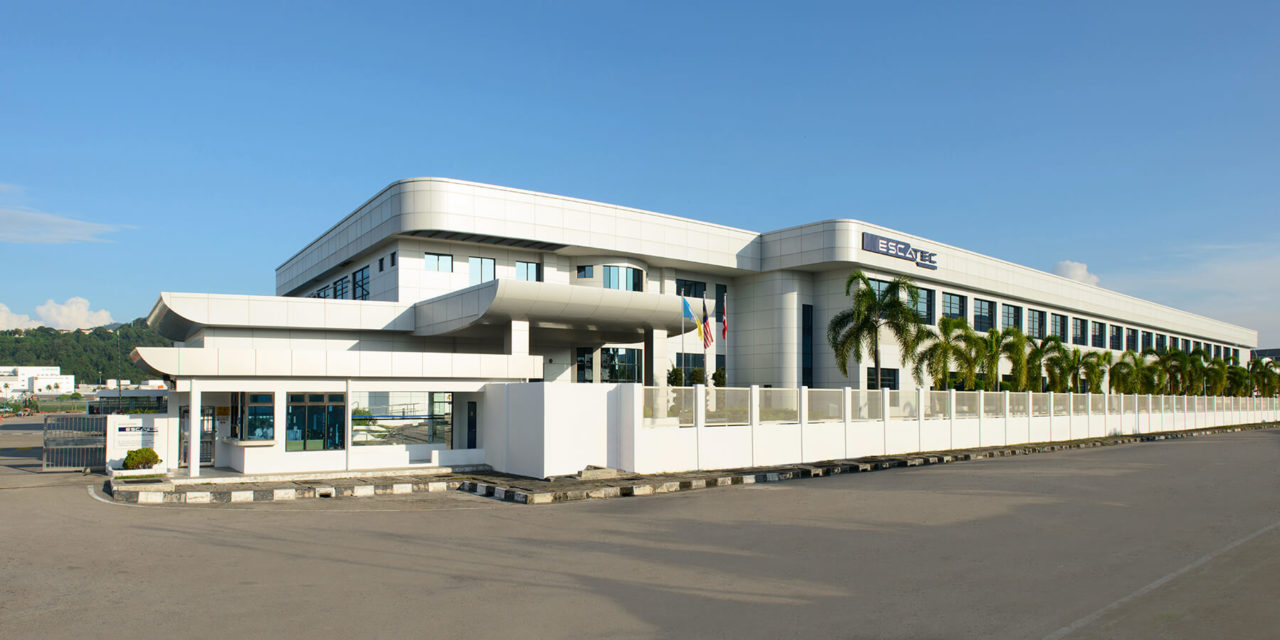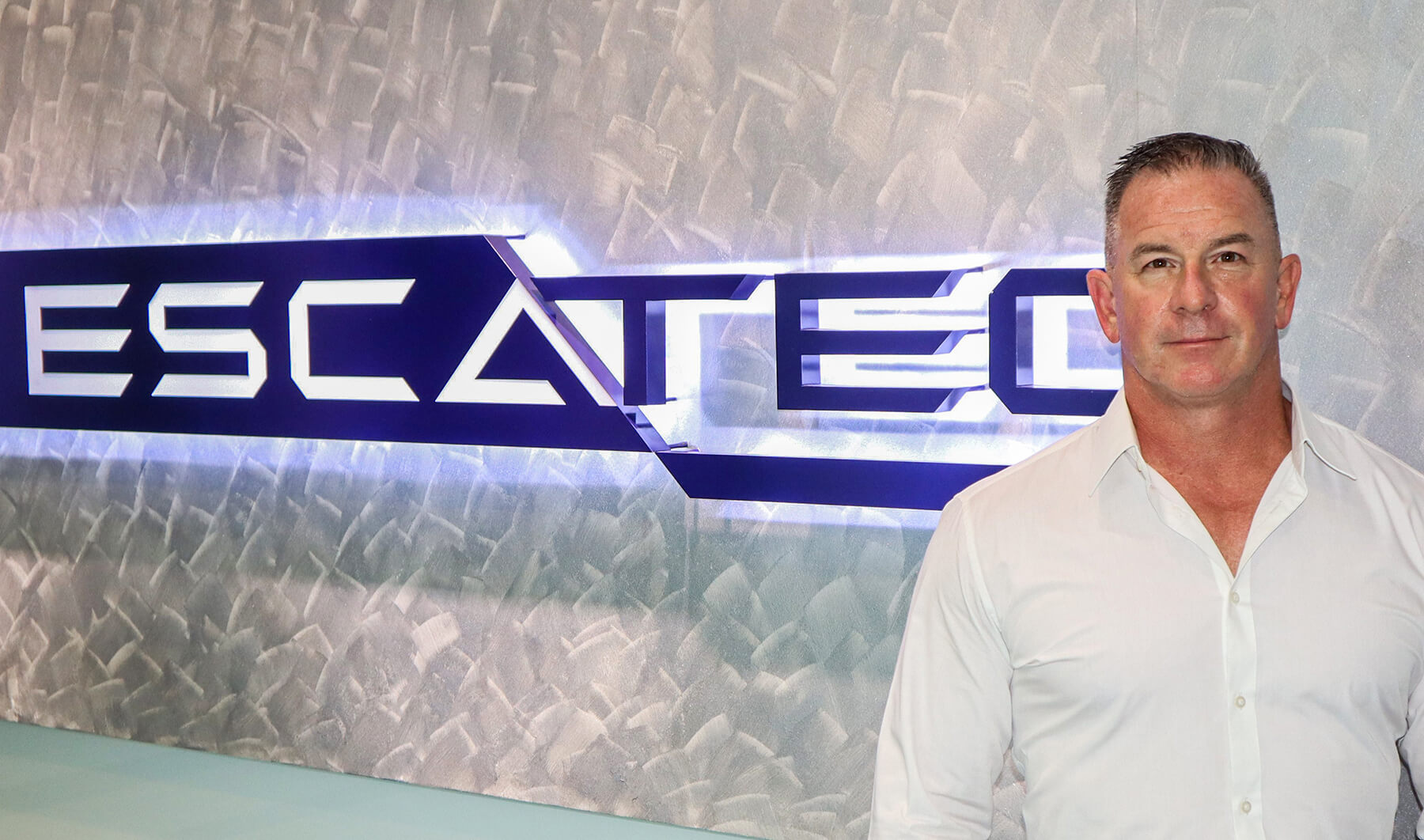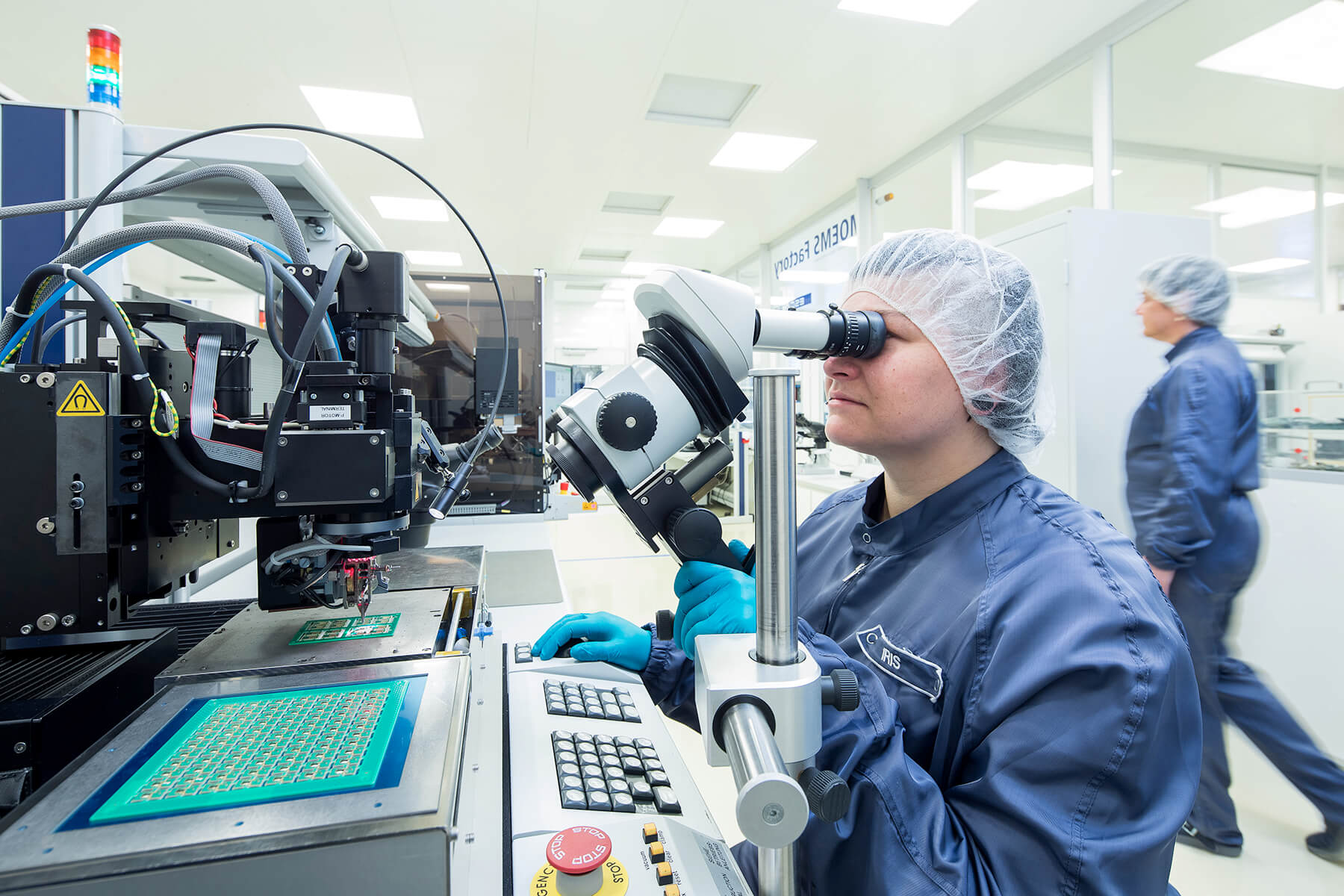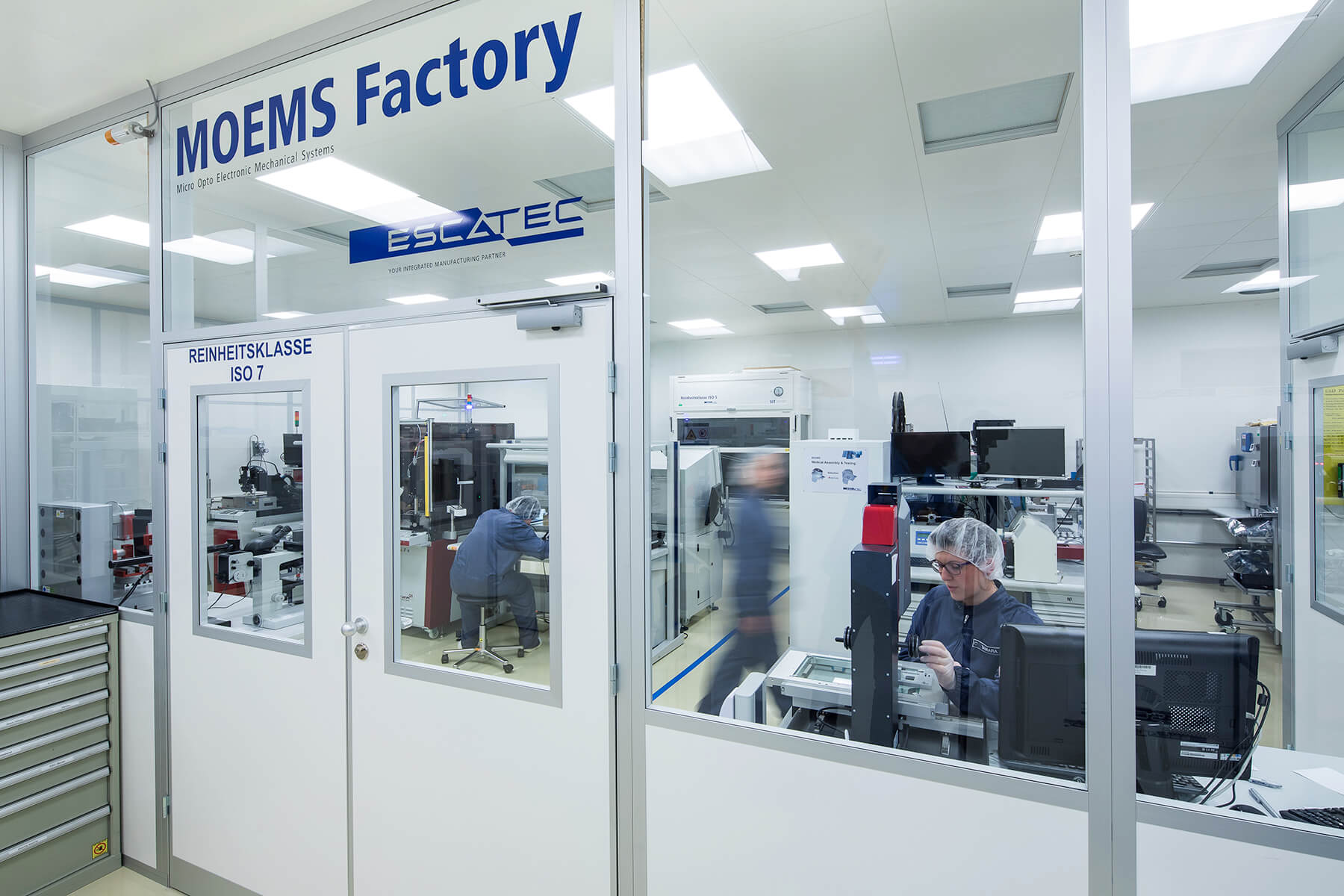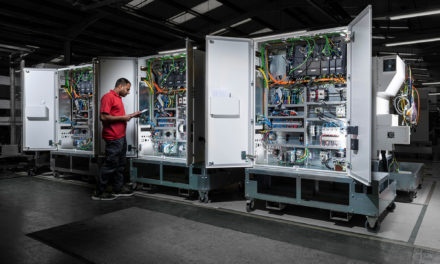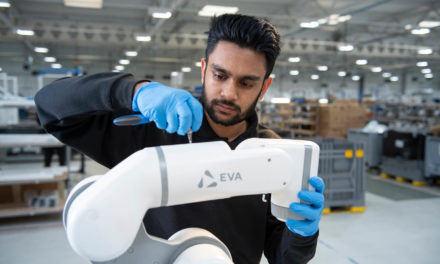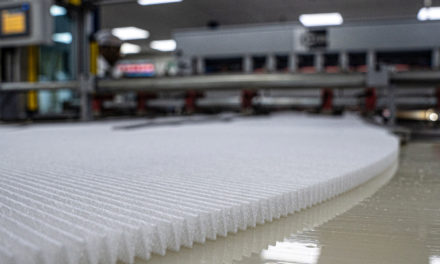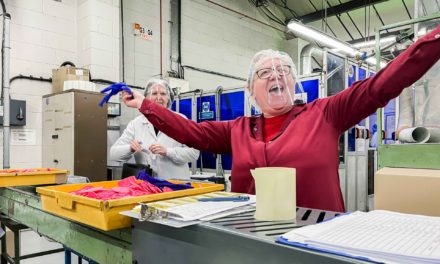ESCATEC
Mid-Sized Champions – ESCATEC
Above: ESCATEC headquarters located in Penang, Malaysia
One year ago, ESCATEC acquired JJS Manufacturing. The acquisition was born out of the strategic plan to grow ESCATEC into a major player in the global EMS industry.
Above: Medical, Automotive, Industrial and IoT/Connected Devices sectors supported
A significant amount of ‘integration’ work has been taking place behind the scenes since, so UKMO wanted to understand more about the acquisition and how JJS Manufacturing had evolved over the past 12 months. Fortunately, Neil Sharp, ESCATEC’s director of corporate marketing, was available to explain how both JJS Manufacturing and ESCATEC’s customers have benefitted from the extra value provided by the union of two incredibly strong, and complimentary, EMS providers.
Global footprint and additional services
Since the acquisition, ESCATEC has continued to grow in expertise, technology and size. ESCATEC now has production facilities in Lutterworth, UK; Chomutov, the Czech Republic; Penang and Johor Bahru, Malaysia; and Heerbrugg, Switzerland. In addition, ESCATEC also has strategic design and manufacturing partnership agreements in place in Wisconsin and Croatia. The company currently has a combined area of more than 400,000 sqft of connected facilities and a team of 3,000 highly trained and committed employees across the globe.
The acquisition combined both companies’ individual strengths: JJS has been producing complex, highly configurable, low-volume, electronic, electrical and electro-mechanical assemblies since 1983. ESCATEC’s history has been supporting OEMs in a variety of sectors, including medical and automotive, with product design and development and high-grade electronics and box build manufacturing solutions.
Thanks to the acquisition and the combination of these complimentary skill sets, existing customers are now benefitting from an enhanced ‘end-to-end’ service offering. “For example, a client in the automotive sector that has historically dealt with one of our Malaysian factories for PCBA and box build products is now in conversation with our Czech facility regarding a larger format electro-mechanical assembly,” says Sharp. Being able to support new and existing clients with their entire product portfolio, not just part of it, adds real value and reduces the need for them to partner with several different EMS providers.
Prior to the acquisition, JJS Manufacturing was not able to offer in-house product design and development services to its customers. However, thanks to the 40-strong in-house design team based in Switzerland, with demonstrable experience in bringing medical devices and micro-opto-electro-mechanical systems (MOEMS) to market, this is now a value added service they can support. “When partnering with ESCATEC our customers benefit from a reduced time-to-market thanks to the way in which our in-house product design and development team work alongside our manufacturing plants. Our process makes the transition between ideation, prototyping and volume manufacturing seamless, and our customers’ are able to place products onto the market quickly at a competitive price, safe in the knowledge all regulatory requirements have been considered during the early stages”, adds Sharp.
Company culture
Continuous improvement is an essential part of ESCATEC’s DNA and Kaizen is ingrained throughout the company. Across all sites, the management team share and review new Kaizen projects in monthly knowledge-sharing sessions. These sessions enable each business unit and the management teams to take this knowledge and implement operational efficiencies, safety enhancements or cost reductions within individual sites. All staff are encouraged to consider and suggest process improvements and regular lean and value engineering workshops take place throughout the year which customers can access and benefit from.
Significant growth
Globally, 2021 was tough, but it was also the year ESCATEC supported one of its most significant contracts to date. The EMS provider manufactured two products for a prominent European customer, designing real-time supply chain monitoring technology that offers precise location tracking.
ESCATEC had to work to incredibly tight deadlines as the customer had recently won the contract to provide a pharma giant with cold-chain monitoring services for the global supply of its Covid vaccine. They needed a partner that could set up and scale quickly with them in order to fulfill their growth objectives.
A New Product Introduction (NPI) team applied DFM (Design for Manufacturing) focusing on quality and discovered several design enhancements that would improve the effectiveness of the data loggers. These modifications were swiftly communicated to the customer, and the designs were made ready for the next stage. The entire turnaround time from receiving the initial designs to making the recommended enhancements took less than two weeks.
Upon completion of the NPI process, ESCATEC’s MYCOM team took over to ensure the new assembly lines would be ready. This involved investing in new machinery, setting-up additional production lines and multiple new workstations, getting jigs and fixtures ready, identifying and implementing process and quality improvements, and installing test equipment and routines.
In total, seven new assembly lines were intially created with 150 production operators assigned to the project, capable of manufacturing and delivering more than 25,000 units per week. Since the initial launch, and as the roll-out of the vaccine continues globally, the volumes have increased by circa 50% and ESCATEC has also supported the customer with a series of upgraded product designs and initiatives.
Reshoring
First Covid and now the war in Ukraine continues to cause untold supply chain disruption. The consequence has been a shift in strategy towards reshoring or regionalising production.
Sharp says that; “ESCATEC’s global operation means that we are well placed to support OEMs looking to move their manufacturing to more local markets and territories.”
ESCATEC first witnessed OEMs reconsider their manufacturing options when Covid started to take hold of supply chains but the company expects the war in Ukraine to cement strategic change. Sharp says “when talking to new clients about their existing manufacturing partnerships and current concerns, they tend to centre around extended shipping times, increased import tariffs, and a
lack of control regarding component supply chains.”
Despite unit pricing from China remaining competitive, ESCATEC recognises that many OEMs are now more focussed on the total cost of ownership and their ability to deliver products quickly into the markets where their customers are located. The EMS provider believes that supply chain disruptions experienced around the world over the last couple of years have forced a shift in priorities; this is affecting OEMs’ decision-making process when deciding which manufacturing partner to work with.
With sites in the UK, Switzerland, the Czech Republic, Malaysia, and design and manufacturing partners in the US and Croatia, ESCATEC is well placed to weather this change. Multiple locations provide customers with a variety of options and levels of flexibility when reshoring manufacturing.
However, OEMs wanting to reshore production are facing several challenges – especially those that originally partnered with an ODM. Specifically, they are having trouble accessing the build data, drawings and software they need to transfer production back to a ‘local’ EMS provider. Sharp says; “we are currently talking to one OEM that designs and sells air purification systems. They have
found themselves with minimal data at a time when they are experiencing rapid growth and need an alternative solution. To support the transfer away from their existing supplier, we are now in the process of reverse-engineering the product and data from a golden sample.”
People and equipment
“One of JJS Manufacturing’s central pillars historically has been to continually invest in people and equipment, which coincides with ESCATEC’s philosophy,” says Sharp. The Group is currently focused on developing our existing talent and investing in new staff in every location.
In the UK, the annual Electro-Mechanical Apprenticeship campaign has started with the view of expanding the team so that the needs of both new and existing clients are met. Also, as a result of the recent acquisition, several new roles and promotions across the group have taken place with some staff taking advantage of changes to internal structures, strategy and additional responsibilities as part of the ‘integration’ process. “ESCATEC looks forward to investing in and promoting the best talent in the business,” says Sharp.
In terms of additional investment in equipment and technology, to aid efficiency and quality gains, the UK site will be installing four new Kardex automated material storage and retrieval systems, along with 3D AOI, an additional X-Ray machine, and a Coordinate Measuring Machine during 2022.
“Having worked in manufacturing for the last 20 plus years you have to remain an optimist,” says Sharp. Despite the constant challenges the world continues to throw at us we do what we know best; find a solution, move forward and come out the other side stronger. Personally I’m very excited about the road ahead and ESCATEC has an incredibly strong service offering. We currently support a significant number of market leading technology companies and I’m looking forward to supporting more in the years to come.”
“Thanks to the acquisition and the combination of these complimentary skill sets, existing customers are now benefitting from an enhanced ‘end-to-end’ service offering”
Above: Dedicated Micro-Opto-Electro-Mechanical-Systems facility
“First Covid and now the war in Ukraine continues to cause untold supply chain disruption. The consequence has been a shift in strategy towards reshoring or regionalising production”
Above: High grade electronics and box build production line
“ESCATEC first witnessed OEMs reconsider their manufacturing options when Covid started to take hold of supply chains”

